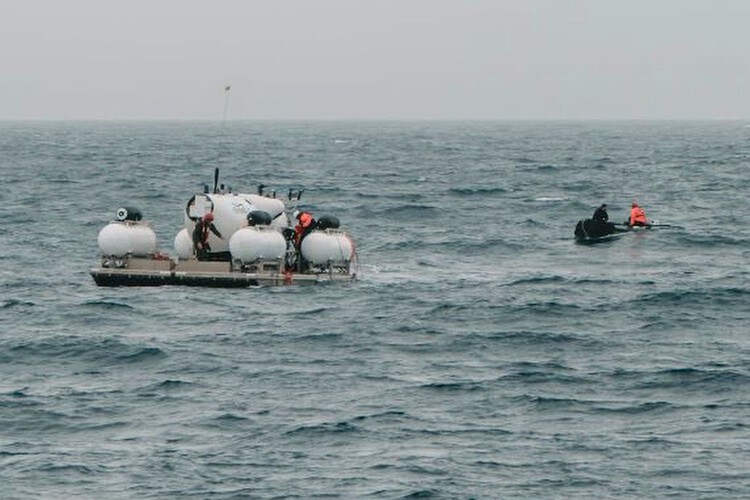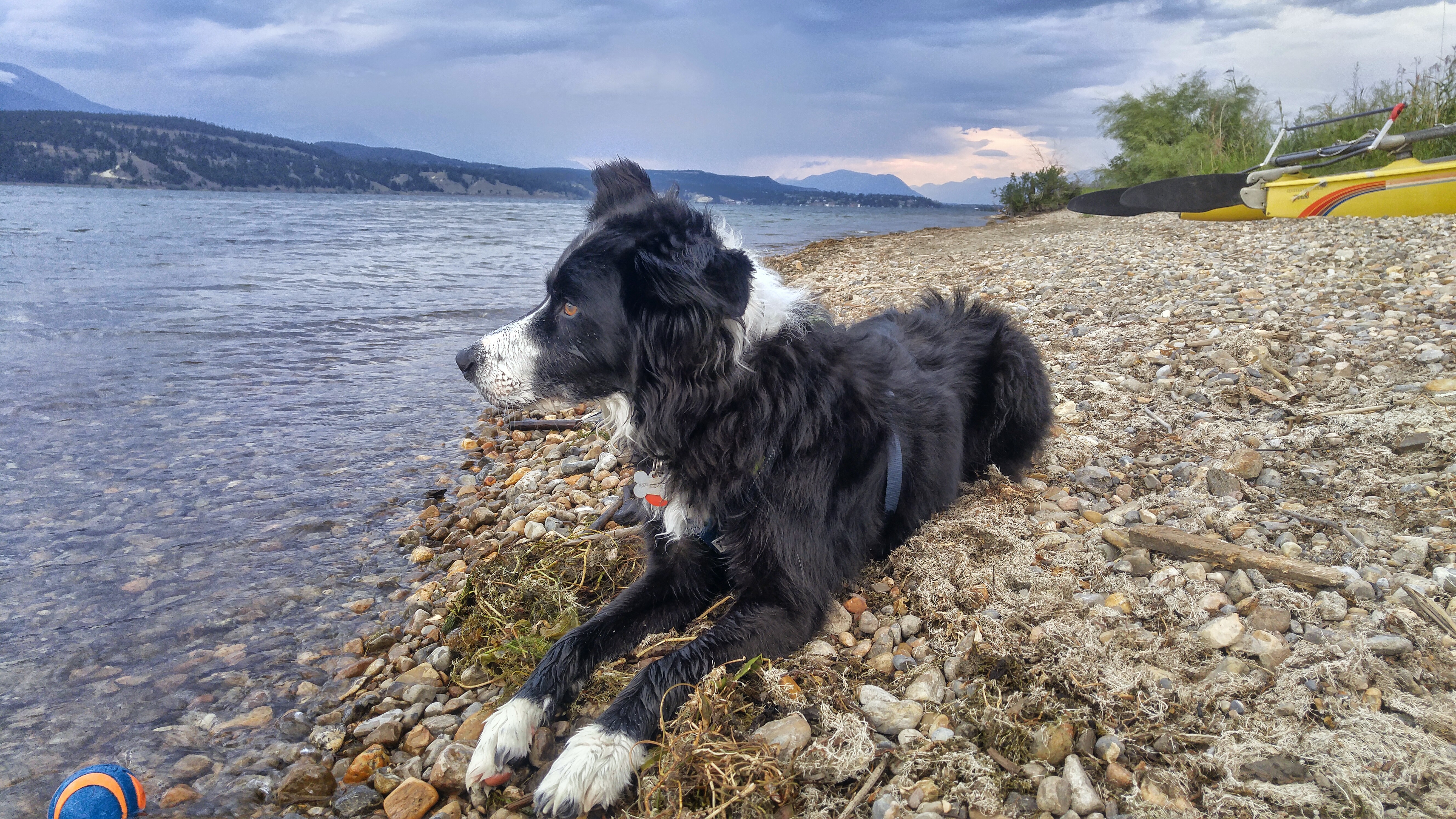Underwater microphones designed to detect enemy submarines first detected Titan tragedy.
I suppose there was some discussion on whether to conceal or reveal the tech and that’s why we’ve only heard of this now.
The fact that we have these low frequency listening arrays has been known publicly for a long time. More closely guarded are the analytical techniques.
It’s likely that the watch team flagged the implosion as artificial in real time, but could not identify the cause until other pieces of info were aggregated. The found wreckage today likely confirmed their suspicion.
source: worked at the navy’s listening post watch floor years ago.
Sounds like a really cool and boring job…
Welcome to the Navy, here’s a broom.
You and the Navy, go clean the head!
Boring until the one time it isnt
Hurry up and wait.
This is great insight!
https://www.nbcnews.com/news/amp/rcna90336
We wasted resources trying to save a billionaire greed class oppressor while we let struggling brothers and sisters who would have been far easier to save drown by the dozens.
Human life means nothing to humanity. Only capital. Only greed. The more you hurt/exploit/oppress other people, the more greedy little assholes will try to keep you alive for your sociopathy.
We wasted resources trying to save a billionaire greed class oppressor while we let struggling brothers and sisters who would have been far easier to save drown by the dozens.
Have to disagree, this was valuable and real world training experience for military and coast guard resources that would otherwise be running simulation rescues anyway. The gear and people both need to be trained and maintained to be functional, let alone effective, in a real crisis. These are the a similar set of resources (people, machines, systems, etc.) that would be deployed for a fishing boat that sank, or a plane that went down in that area. That Malaysia Airlines flight several years back is an example of international military resources being deployed similarly.
While I agree the military budget is bloated in many ways, this isn’t one of the areas where it makes sense to call it favoritism or greed when the same resources deployed to assist in searching for the OceanGate sub would not have been able to be deployed into the Mediterranean. There’s no overlap there, and while money and resources would be of a great help that would not have been instead of the OceanGate search, but rather in addition to it.
Actually, now that I think about it - is the US military or coast guard even authorized to operate in the Mediterranean? Looks like we have some operating agreements and exercises with Malta but I’m not seeing a lot of readily available hardware that gets deployed there. You’re certainly not getting any large scale hardware (cutters, subs, deployment platforms) into the Mediterranean in short order.
Overall seems like a fundamental misunderstanding of how S&R works on a global scale.
Also, people are vastly underestimating how slow boats are. A boat large enough to be useful for search and rescue can only move at like 30 mph, tops. The wreck of the Titanic is only a few hundred miles off the coast of Newfoundland; reason it took so long to find the sub debris field is because the boat carrying a submersible capable of diving to those depths only just arrived on the scene this morning-- four days after the search began.
No way any boats stationed on the east coast of the US could have made it to the Medditeranean in time to be helpful in the search for the drowned migrants, and vice versa.
That is exactly right. This wasn’t about saving them, but is an invaluable exercise that can’t be replicated by a tabletop or full scale exercise. Agencies were probably jumping at the chance to get involved.
Actually, now that I think about it - is the US military or coast guard even authorized to operate in the Mediterranean? Looks like we have some operating agreements and exercises with Malta but I’m not seeing a lot of readily available hardware that gets deployed there. You’re certainly not getting any large scale hardware (cutters, subs, deployment platforms) into the Mediterranean in short order.
I can’t imagine that they are, at least, not without first co-ordinating and clearing it with local authorities, and if a country suddenly did that without warning, I can’t imagine that the reception (or the imagery) would be particularly positive.
Imagine being Malta, and suddenly the US is beelining a bunch of military hardware your way with neither announcement nor warning. That would probably set off all sorts of warnings.
All this while I was thinking the billionaires are going to die because search and rescue operations in any state experiencing a period of fascism are more focused on pushing boats back out to sea.
Not doing actual rescues, that would build experience, test out gear, and maybe even invent new contraptions for future rescues.
Karma, if you like.
We get it.
You want to be edgy because you can’t imagine how the resources spent and trained in a submarine rescue operation are completely different than the ones that would be useful in a surface ship rescue operation. Nor how resources stationed for North Atlantic operations wouldn’t be able to reach the Mediterranean anywhere soon enough.
Or how “pushing boats back out” would be coastal work and that has virtually zero relation to open sea.
But you enjoyed watching these humans die because they’re billionaires instead of refugees. You don’t care about human life, you just care about political point scoring.
Actually, now that I think about it - is the US military or coast guard even authorized to operate in the Mediterranean?
Aside from territorial waters, you don’t need authorization to operate in the ocean. It’s international waters.
There are international agreements to cover maritime search-and-rescue in certain areas, so that (most of the time) two countries don’t just point their fingers at each other and say “this one is your problem”, but it’s not as if you’re not allowed to rescue someone in an area that someone else is responsible for rescuing people in.
A military training exercise would be much smaller in scope, coordinated to manage costs, and done at a time that was convenient. It also wouldn’t include private vessels.
There were private vessels and ROVs involved. The debris field was found by the Horizon Arctic, a private vessel that services oil rig deep sea anchors. Who is paying that private ship? We are. They certainly wouldn’t be part of a training exercise.
In this case the American and Canadian coast guard spent resources trying to save people after they got into danger, and it sounds like the Greek coast guard might have spent resources keeping desperate people in danger until hundreds drowned.
The tragedy in Greece is an endictment of the Greek coast guard and western countries attitudes towards the developing world and refugees in general, but just because more people’s houses are on fire elsewhere doesn’t mean you shouldn’t put out your own.
Well said
A man who blatantly skirted safety regulations and not only fired, but sued, employees/contractors that called him out on safety concerns. He complained that these safety concerns were stifling innovation and bragged that NASA and other agencies were consulting on the design (hint, they didn’t, they only recommended what material to use for the hull, and that was the extent of it).
All of this was to try to get billionaires’ money for adventure tourism under the guise of it being a research team and calling them “crew”. Others on previous dives said that he likened the risk to the innovation of the industry as a whole and that if the Wright Brothers had fallen during their flight, at least the industry would have known flying was possible and would have continued on and learned from it. He neglected to point out that the industry already has many, many successful submersibles, so much so that there are industry standards for safety! Additionally, this man didn’t contribute any research to the scientific community based on these dives. Truly just a grifter trying to exploit the titanic for tourism.
he likened the risk to the innovation of the industry as a whole and that if the Wright Brothers had fallen during their flight, at least the industry would have known flying was possible and would have continued on and learned from it
There’s a Twitter discussion about the Wright Brothers innovating for safety. Basically, the Wright Brothers realized that innovating on control and safety were more important than innovating on power when it comes to developing powered flight. Once you have a controllable glider, putting on a motor was the easy part.
That was a really interesting thread, thanks for the link. Most interestingly, it was posted a week ago, days prior to the sub going missing. When you described it I assumed it was in response to the saga.
We try our best when it comes to our shores
Both are tragedies. It is not to fair to say nothing was done, however. Travel at sea is dangerous.
Fuck off with this shit. Sounds as if you’re the one with some sociopathy.
deleted by creator
I think that everyone involved in the search already assumed it was an implosion. The sub lost comms and navigation simultaneously which strongly suggested a catastrophic event.
Sub Brief had a good overview on the structural parts of the sub. Sad as it may be this was the best way for the casualty to occur. Hopefully this will temper others in their designs on these smaller subs. Does anyone else have good resources on what some of the other subs out there are made from?
Paywalled, can anyone copy the text?
OP delivers:
A top secret military acoustic detection system designed to spot enemy submarines first heard what the U.S. Navy suspected was the Titan submersible implosion hours after the submersible began its voyage, officials involved in the search said.
The Navy began listening for the Titan almost as soon as the sub lost communications, according to a U.S. defense official. Shortly after the submersible’s disappearance Sunday, the U.S. system detected what it suspected was the sound of an implosion near the debris site discovered Thursday and reported its findings to the Coast Guard commander on site, U.S. defense officials said.
While the Navy couldn’t say definitively the sound came from the Titan, the discovery played a role in narrowing the scope of the search for the vessel before its debris was discovered Thursday, the officials said.
“The U.S. Navy conducted an analysis of acoustic data and detected an anomaly consistent with an implosion or explosion in the general vicinity of where the Titan submersible was operating when communications were lost,” a senior U.S. Navy official told The Wall Street Journal in a statement. “While not definitive, this information was immediately shared with the Incident Commander to assist with the ongoing search and rescue mission.”
Officials decided “to continue our mission as a search and rescue and make every effort to save the lives on board,” the U.S. Navy statement said.
The Navy asked that the specific system used not be named, citing national security concerns. It is normally used to detect enemy submarines.
The U.S. Navy typically deals with foreign threats using military capabilities. The U.S. Coast Guard typically carries out search-and-rescue operations and handles other matters directly related to security of the country. The two services often operate together due to their mutual maritime missions. The search for the Titan was conducted roughly 900 miles off the coast of Massachusetts.
Searchers found debris from the submersible roughly 1,600 feet from the bow of the Titanic wreckage, the U.S. Coast Guard said. Canadian, U.S. and French ships were part of the search.
The Coast Guard didn’t immediately respond to requests for comment about what information it received and how it was used.
Throughout the search, rescue crews detected several types of noises, U.S. and Canadian officials said, including the one suspected of being the sub’s implosion. An underwater implosion is the sudden collapse of a submarine when the tremendous pressure of the seawater overpowers the pressure inside the vessel and crushes it.
Officials leading the search also said they heard sounds similar to knocking from the vessel, but said they couldn’t conclude the noises came from the Titan.
It was unclear what other factors narrowed the search area, which eventually grew to twice the size of Connecticut. But a U.S. defense official said “the analysis of the acoustic data was a significant factor in scoping the search area, and thereby enabling the assets on scene to locate the degree of the debris field.”
The U.S. is expected to conduct an investigation to try to determine whether the sound definitely came from the Titan, but what government entity would carry out the probe—and any time frame for completing it—remains unclear, a U.S. defense official said.
The U.S. developed its acoustic systems after World War II to detect enemy submarines operating in the Atlantic and Pacific Oceans.
The Navy said it shared its findings Sunday with the Coast Guard, which led the search, U.S. defense officials said. The U.S. held off making public what noises it had detected because it wanted to ensure search-and-rescue operations continued and couldn’t say for sure it was an implosion.
“It looks that the Titan imploded on Sunday on its way down to the Titanic shortly after contact was lost at a depth of around 9,000 feet,” a person with direct knowledge of the matter said.
The five men onboard the missing submersible in the North Atlantic are believed to be dead, the U.S. Coast Guard and the company that operated the vessel said Thursday.
The sub’s disappearance had set off an urgent international search effort to find its occupants alive.
The families were informed Thursday of the Navy’s findings when the search-and-rescue team discovered the debris field, according to a U.S. defense official.
The submersible had departed Sunday for what was supposed to be an hourslong excursion to the Titanic shipwreck, more than 2 miles below the ocean’s surface. Shortly after the voyage began, the sub lost contact with the outside world.
Write to Ben Kesling at ben.kesling@wsj.com, Nancy A. Youssef at nancy.youssef@wsj.com, Gordon Lubold at gordon.lubold@wsj.com and Costas Paris at costas.paris@wsj.comThank you.
In the future you may also consider linking directly to the source article instead of through apple news or an amp link.
Source article is also paywalled. It’s Wall Street Journal.
Fwiw https://archive.is always gives a non-paywalled link
It’s worth. Will do that going forward. I’ve seen this before but forgot to do it for this post :(
deleted by creator
Gonna be interesting to see if this is legit because I’m a press conference today they said they didn’t detect any implosions.
The US Coast Guard did NOT detect any implosions just as they said. It was the US Navy that detected it.
Whether or not that was communicated to the USCG, I don’t know.
Edit: now I see in the article- it was communicated on Sunday. But the USCG statement was still technically true. They didn’t detect an implosion.


















